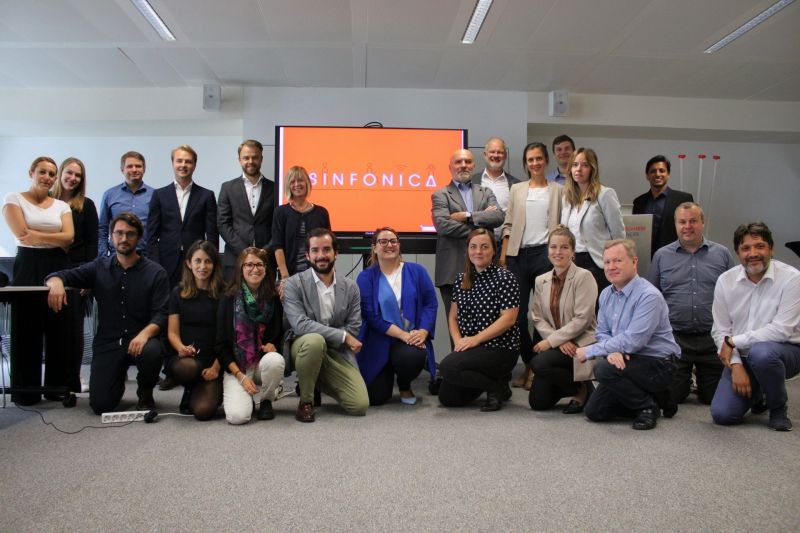SINFONICA
On the first of September 2022, a new European project has started under the umbrella of Horizon Europe coordinated by the team of ICOOR-UNIMORE.
SINFONICA – Social Innovation to Foster iNclusIve Cooperative, Connected and Automated Mobility – aims to answer the part B of call of HE Call HORIZON-CL5-2021-D6-01-05:
Analysis of socio-economic and environmental impacts and assessment of societal, citizen and user aspects for needs based CCAM solutions (CCAM Partnership)
The vision of SINFONICA is to develop functional, efficient, and innovative strategies, methods and tools to engage CCAM users, providers and other stakeholders (i.e. citizens, including vulnerable user groups, transport operators, public administrations, service providers, researchers, vehicle and technology suppliers) to collect, understand and structure in a manageable and exploitable way their needs, desires, and concerns related to CCAM. SINFONICA will use this knowledge to co-create final decision support tools for designers and decision makers with the scope to enhance its seamless and sustainable deployment, to be inclusive and equitable for all citizens. Testing and verification of all the SINFONICA activities with a wide community of actors across Europe will be at the core of the project, so all outcomes provide foundations for reuse and empowerment at local level.
CHALLENGES
The mobility of goods and people is one of the essential elements of sustainable urban and regional development. The way transport services are operated strongly characterise the urban space and it has a direct impact on the resiliency capability and sustainability of towns, cities, and regions as well as on citizens’ quality of life. Smart mobility planning, which includes Cooperative, Connected and Automated Mobility (CCAM) solutions, is expected to lead to a future where mobility changes the way transportation is conceived. SINFONICA aims to facilitate the shift toward innovative, smart mobility concepts in an inclusive and equitable way by tackling the following challenges:
Challenge 1: Lack of cohesion and fragmentation in the smart mobility sector.
Challenge 2: Low understanding of mobility needs of citizens (especially vulnerable citizens) and need to overcome the digital divide, analysis of barriers and obstacles to mobility.
Challenge 3: Need for new approaches in sustainable mobility planning and policy making, considering both technological and socio-economic innovation.
Challenge 4: Low awareness, acceptance and concerns of potential benefits and impacts provided by CCAM.
Challenge 5: Need to align and synchronise economic and social scopes of CCAM, in terms of technological developments and incentives.
OBJECTIVES
The goals of SINFONICA are developed through 4 pillars which define the strategic objectives (SO) of the project:
SO1: Create a strong knowledge base, mapping user needs and requirements, especially for vulnerable users, for an inclusive CCAM transport system.
SO2: Enable stakeholders to take informed decisions for social inclusive CCAM transport systems depending on their specific context.
SO3: Define a participatory framework to involve and engage citizens and relevant stakeholders in the design and creation of inclusive CCAM transport system.
SO4: Provide recommendations and guidelines for social innovative, citizen-oriented CCAM long term planning and large scale demonstrations in cities.
KICK OFF MEETING
On the 7th and 8th of September the Kick off Meeting of SINFONICA took place in Brussels: we are ready to start this journey deepening an overall bottom-up approach to capture the mobility needs of European citizens with special attention to the needs of vulnerable users and under-researched groups.
The process will be facilitated by the establishment of Groups of Interest in Trikala , Hamburg, Noord-Brabant province, and West Midlands metropolitan area . Stakeholders’ representation of different segments of the society will be directly engaged in a participative process that will lead to the developments of a wide inventory of Knowledge in the form of “knowledge maps”, an innovative tool able to exploit the knowledge by providing practical guidelines, long term recommendations.

